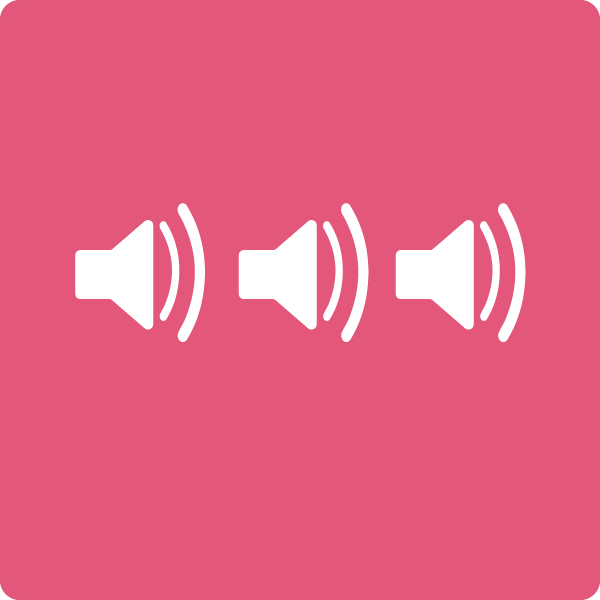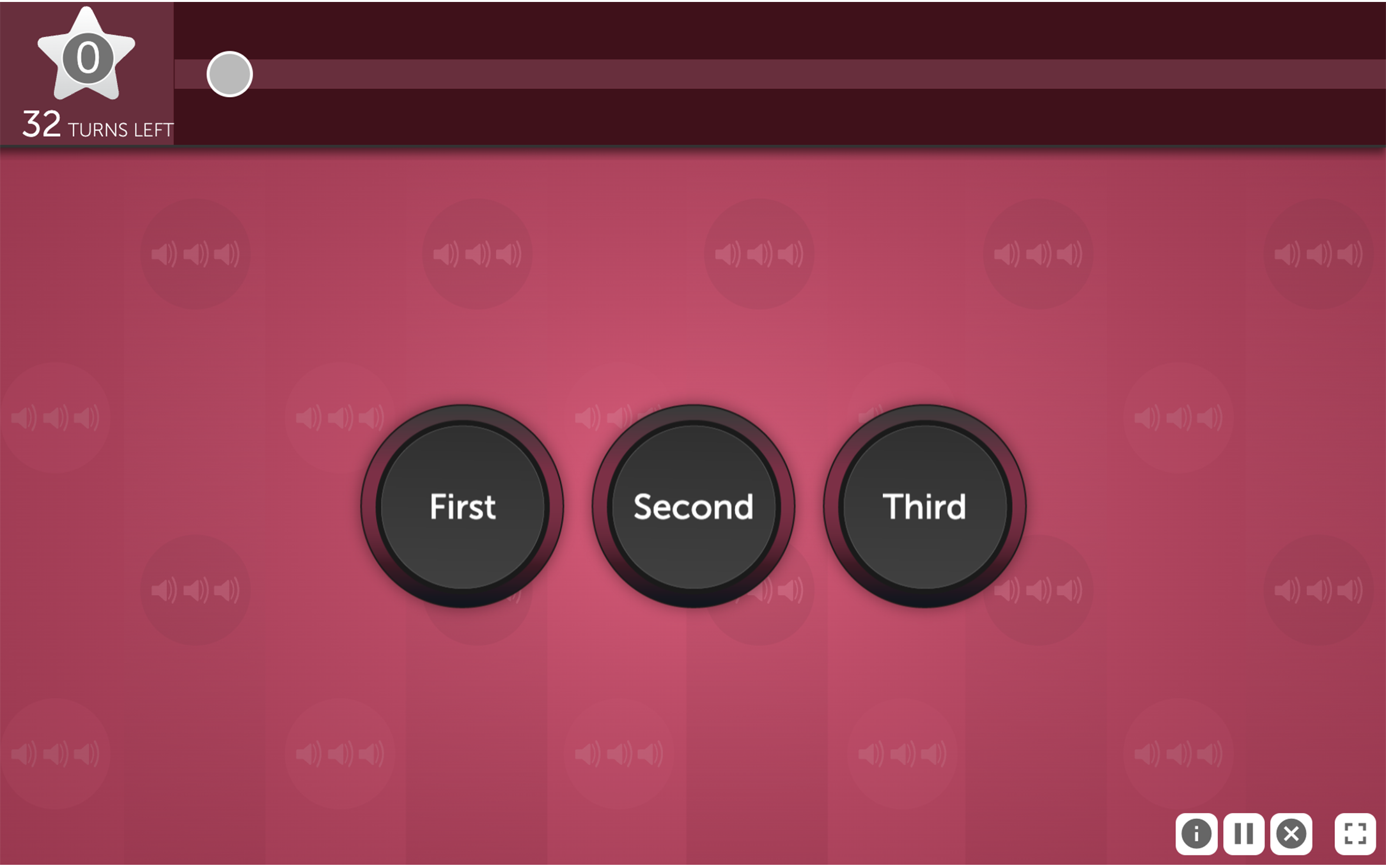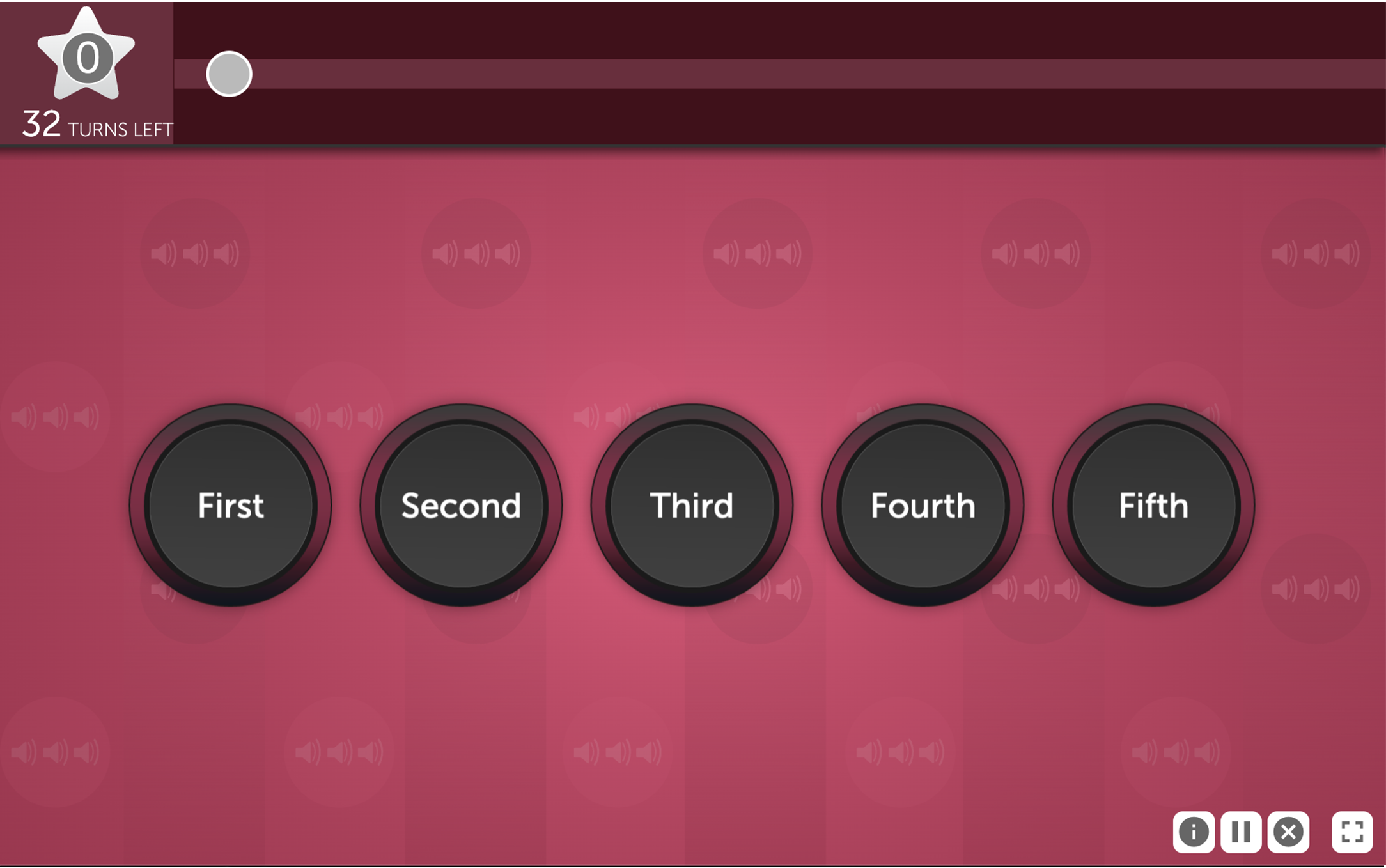 When you’re going about your daily life, your brain has to take several steps. It has to perceive things, attend to them, decide what to do about them, and respond to them. Distractions can interrupt at any moment. Hear, Hear is designed to train your ability to ignore distractions during the perceiving and attending stages by exercising your sensory discrimination skills.
When you’re going about your daily life, your brain has to take several steps. It has to perceive things, attend to them, decide what to do about them, and respond to them. Distractions can interrupt at any moment. Hear, Hear is designed to train your ability to ignore distractions during the perceiving and attending stages by exercising your sensory discrimination skills.
Sensory discrimination is what we use when we listen to the person we’re talking to but filter out other voices in a crowded place, or when we are watching a movie and we are able to watch it without hearing the annoying sounds of people munching on popcorn. Our brains discriminate between the sounds upon which we want to focus and those we want to ignore.
In Hear, Hear, you are asked to remember a target sound and determine whether a set of similar sounds presented contain the target. The exercise changes in three ways:
- sometimes you’ll hear beeps (a single frequency) and other times you’ll hear sweeps (a set of frequencies)
- the beeps and sweeps become shorter and closer together
- the beeps and sweeps become more similar to each other
An early study using electroencephalography (EEG) has found that Hear, Hear reduces responses to distractions in the brain, in both the parts of the brain that process sound and in the frontal “executive control” areas of the brain.


